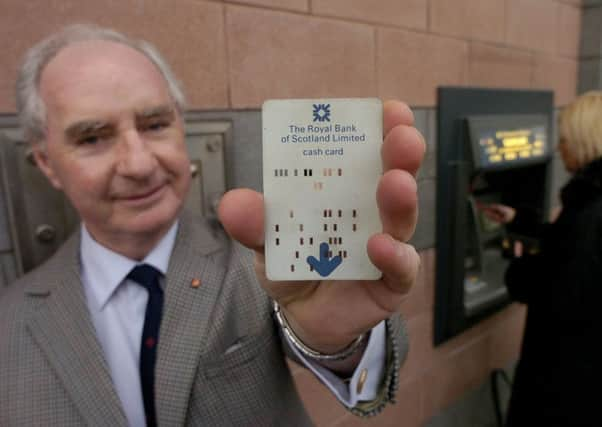Scot behind PIN technology hails '˜eureka moment' 50 years ago


James Goodfellow, 79, was a young engineer working in Glasgow in the 1960s when the banks were looking for a way of letting customers get hold of their money after branches closed on a Saturday morning.
He worked on the project for a number of weeks and came up with the idea of a coded card with a personal number to access money from cash machines.
Advertisement
Hide AdAdvertisement
Hide AdAfter getting the go-ahead from bosses and the “great and the good” of the banks, he started work on developing the concept with a team of engineers.
The patent was then applied for on 2 May, 1966, and the system soon became accessible for millions of people around the world.
Mr Goodfellow said he had gained no financial benefit from his invention but has gradually received recognition over the years.
Ten years ago he was made an OBE, and in 2014 was given an honorary doctorate from the University of the West of Scotland.
Mr Goodfellow, who lives with wife of 50 years Helen in Paisley, said: “The banks wanted an automatic cash dispenser – something that would provide a service 24/7 unmanned.
“They wanted a methodology for allowing access to cash on this unmanned basis. It eventually landed on my desk and the reason probably was that in 1964 I had spent some time in the United States designing access control systems.”
Recalling the time dedicated to the project, he said: “I was left with this problem – the demand was a million customers, 2,000 machines scattered throughout the UK which anyone could use at any time, and only money dispensed to a recognised person.
Advertisement
Hide AdAdvertisement
Hide Ad“The conventional view at the time was that it was going to be biometrics – such as your fingerprint – but that was totally impractical for many reasons. The actual sort of eureka moment took place when I was messing around and suddenly realised that I could do it and it would probably solve the problem.”